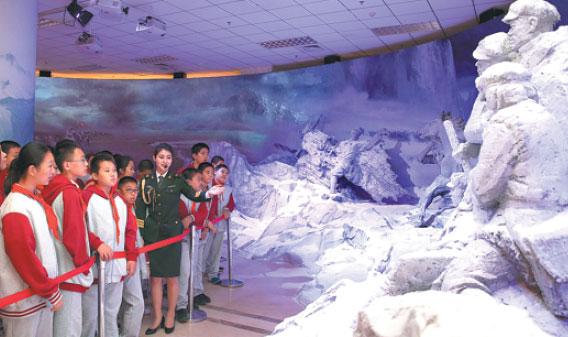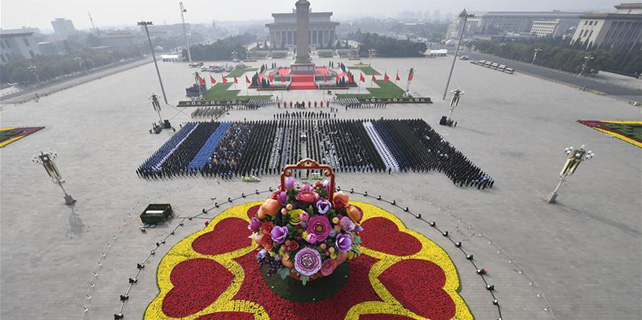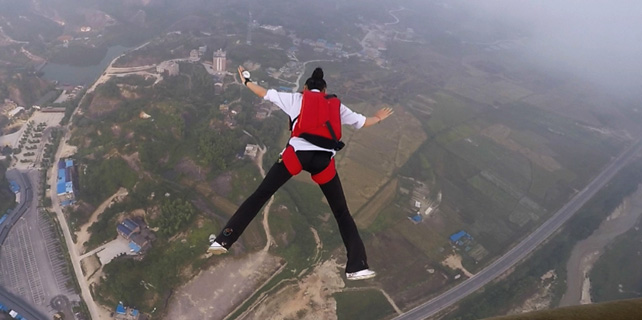Government leads in patriotic education
|
Children visit an exhibition marking the 80th anniversary of the Long March at the Military Museum of China in Beijing. [Ying Gang/Xinhua] |
New forms urged
In 1994, the Central Committee of the Communist Party of China issued a series of guidelines on how patriotic education should be conducted.
Following the guidelines, the following decade witnessed patriotic education carried out in various ways, such as organizing students to appreciate exhibitions, watch movies, visit historical places and take part in related speeches, knowledge and singing contests.
After being implemented for more than 20 years, the limitations of such forms of patriotic education have become increasingly obvious.
Xiong Bingqi, deputy director of the 21st Century Education Research Institute, said patriotic education delivered in these ways might help students to grasp some knowledge about the country, but in the meantime leave them bewildered about what patriotism really means and why they should engage.
"I would rather recommend students take part in social activities and get involved in voluntary services, which would cultivate their sense of social responsibility," he said.
The education authorities had also recognized the necessity of updating the form and content of patriotic education to keep pace with the times.
A notice released by the Ministry of Education in February last year encouraged schools at all levels to innovate the ways by which patriotic education is conducted.
"By deploying the internet and new media, such as micro blogs and WeChat, schools should try to make patriotic education more vivid and appealing," the notice said.
"A good atmosphere should be created on campuses to ensure that students will feel the spread of the patriotic spirit all the time, whether they are in or out of class, online or offline."
However, Xiong said "a good atmosphere" should not be interpreted simply as hanging banners carrying patriotic slogans or having rituals such as raising the national flag while playing the national anthem.
"Foremost is creating a social environment that gives all students an equal opportunity to develop themselves, so that they will feel that they are well-treated and respected," he said.
"People growing up in such an atmosphere will be grateful and spontaneously show their love for society and the country. And that's how patriotic education should work."










